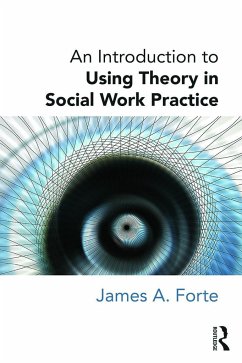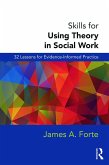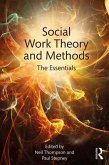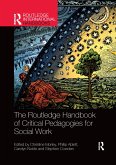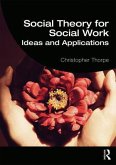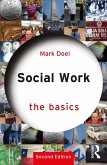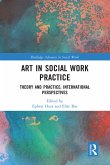An Introduction to Using Theory in Social Work Practice equips the reader to use fourteen key social work theories to guide each phase of the planned change process, from engagement through to evaluation. Suitable for a generalist approach, this book illustrates the value of applying theory to practice in a variety of social work roles, across diverse fields and facing assorted challenges.
The first section provides a practical foundation for beginning to use theory in your social work practice.
Section two looks at how you can translate and integrate fourteen theories commonly found in social work across each phase of the planned change process. The theories discussed are: behavioural, interpretive anthropology, psychodynamic, evolutionary biology, cognitive, symbolic interactionism, strengths, social constructionism exchange economics, role, ecological, critical, feminist, and systems theory.
The final section addresses some key issues for real life social work practice, including common barriers to using theory in practice, the potential for multi-professional communication and theory-sharing, and developing an integrative theoretical model for your own personal practice.
Linking to core competencies identified by the Council of Social Work Education, this text supports social work students and practitioners in developing vital skills, including critical thinking, applying theory and the effective use of the planned change process.
The first section provides a practical foundation for beginning to use theory in your social work practice.
Section two looks at how you can translate and integrate fourteen theories commonly found in social work across each phase of the planned change process. The theories discussed are: behavioural, interpretive anthropology, psychodynamic, evolutionary biology, cognitive, symbolic interactionism, strengths, social constructionism exchange economics, role, ecological, critical, feminist, and systems theory.
The final section addresses some key issues for real life social work practice, including common barriers to using theory in practice, the potential for multi-professional communication and theory-sharing, and developing an integrative theoretical model for your own personal practice.
Linking to core competencies identified by the Council of Social Work Education, this text supports social work students and practitioners in developing vital skills, including critical thinking, applying theory and the effective use of the planned change process.
'The puzzle pieces fit just right with these texts. They can be effective for the everyday practitioner who wants to enhance and evaluate his or her own practice. They are similarly effective for budding undergrad students who have been told they should join social work because they are good at helping others. Yet, I found the book was just right for those who love theorizing and grapple with the pedagogical quandary of helping students think about how they think and what goes into authoring their own ending. The texts use illustrations, tables, grids, and sequential knowledge grids allowing individuals to use them for their own gain. This simple concept helps the practitioner or graduate student spring to page 60 and the undergraduate student use it as a dictionary approach to learning concepts versus simply reading page 1 to page 220. These books are like sweet victory where you feel you have scored. This is the best we have done in theory and theory education to date. Forte hits the homerun and we celebrate.' - The New Social Worker
'[T]he author provides useful..."learning activities and lessons" at the end of each chapter.[T]his book provides a useful framework for teaching and learning about aspects of theorising that are transparent
and potentially open to critical reflection. The framework provided is valid as an approach to making meaning of complex life situations and applying that understanding to social work practice in Australia.'
Deborah Hart, University of Newcastle, Australia, Australian Social Work,
'[T]he author provides useful..."learning activities and lessons" at the end of each chapter.[T]his book provides a useful framework for teaching and learning about aspects of theorising that are transparent
and potentially open to critical reflection. The framework provided is valid as an approach to making meaning of complex life situations and applying that understanding to social work practice in Australia.'
Deborah Hart, University of Newcastle, Australia, Australian Social Work,

